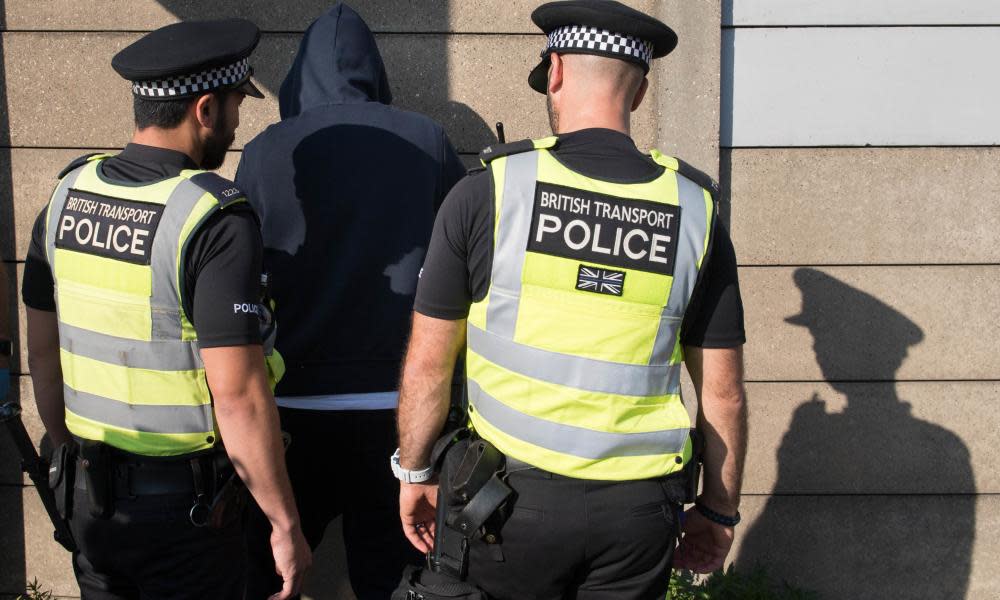A failure at the top of police, and at the top of governments both Tory and Labour

Race issues for the police – after the Macpherson report in 1999 – were seen as a problem mainly affecting the rank and file, which was dominated by the white working class. It was clear that policing would radically change only if government pressured it to do so. Promises were made and very basic targets for the recruitment of ethnic minority officers were set. So why are we still here?
The bitter truth is because those who have the power to do something do not care enough, or lack the will, or focus, or think what the police are doing on race is enough. Critics would say those in power are hampered by institutional racism. The other possibility is that every report on this topic that raised troubling findings has been wrong.
In the case of the current government, there is some concern that it deliberately goes out to race-bait as part of its culture war.
Neil Basu, until recently head of counter-terrorism and a contender to be the next Metropolitan police commissioner, said in 2019 that someone uttering what Boris Johnson had about Muslims and black people would not be allowed in as a police recruit, let alone into the highest office in the land.
One of the more successful chief constables on race, Jon Boutcher, was one of the first, in 2018, to say what this report has now found. It is about having the will. He said: “It’s not rocket science, increasing the numbers of BME officers. It’s about having a genuine commitment, empowering people to make it happen and throwing your weight behind it.”
Understanding that there is an endemic problem is also a vital starting point, and it can escape even policing’s best.
The Met commissioner, Cressida Dick, has been seen by black officers and others in policing as defensive on race, at times in denial. She is arguably one of the most gifted officers of her generation, bright, thoughtful, and hard-working. But on her watch, as the report details, and under the cover of lockdown, stop and search has ramped up in young black communities, doing much damage and achieving relatively little. The Met was wrong, says the all-party panel of MPs.
In a February interview with the Evening Standard, her deputy, Sir Stephen House, doubled down: “Of course our stopping and searching is disproportionate because if it was proportionate you’d be stopping the same number of people across every single community across London, from north to south to east to west, which is nonsense … We don’t stop and search that many women because they don’t tend to be involved in street violence.”
House added: “I’m trying to decriminalise the word disproportionate. It’s focused. People pay us to be professionals and use our brains and focus our activity where the problem lies and we know that young black men are far more likely to be victims of knife crime and violence and homicide than their white counterparts.”
Stop and search remains a vital crime-fighting tool and the biggest flashpoint, but curbing its damaging effects – because it blights so many who are innocent – still seems to be beyond police forces and the current government.
The result is not just that communities grow to see police as oppressive, but that the public good and protection they represent can be denied to certain groups. Black children have told of running away from someone threatening them, only to be treated as a suspect themselves by an officer.
Countless reports on race and policing, or on race and society, are now gathering dust, their conclusions broadly the same, going all the way back to Scarman after the Brixton riots in 1981.
The only way these inequalities keep going for so long, and with so little progress, despite so much evidence, is because those in power – in government and the police – are part of the problem, as the report seemingly lays out.
Rank and file officers can not decide en masse to block progress towards racial justice in the systemic way detailed by the home affairs committee report.
The report exposes years of failures, decades of false assurances to the public from police leaders and from governments of both parties.
After the initial burst of attention following Macpherson, Labour lost interest. One former home secretary privately said Macpherson was wrong to say the police force was institutionally racist – the police were just racist.
Senior people in both parties have known there is a real and enduring problem, in policing, and the society they recruit from.
The Conservatives from 2010 with Theresa May as home secretary made interesting noises, but seemingly could never bring themselves to follow through.
So after the latest devastating report on race and policing, damning of the leadership of law enforcement and government, the following prediction seems safe to make: no one will be sacked, disciplined or lose a penny in pay or pension.
Despite the committee’s warning about urgent action being needed to stop the continued and repeated failings, do set a reminder in your Google calendar. You will probably be hearing all this again in about a decade’s time, if not before.

 Yahoo News
Yahoo News 
